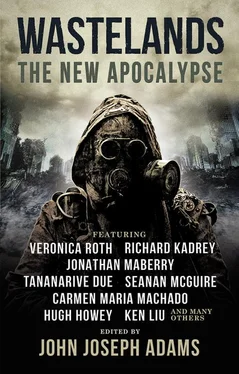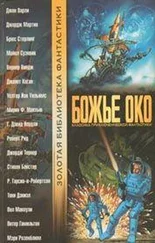Toes and fingers go first. If I have to amputate my fingers, I’ll never finish this book.
Heatstroke
If you exert yourself out in the heat and you don’t drink enough good, clean liquids, your body may become unable to handle the heat normally and go into heatstroke. A common sign is losing the ability to sweat. A person suffering from heatstroke should be moved to as cool a place as possible and kept hydrated. Cover them with damp sheets, splash them with water, make them drink.
Heatstroke can kill you, but it can also cause long-term health problems. Dr. Spendlove has a weak heart from bouts of heatstroke as a child. His family was one of the ones that stayed in Salt Lake City after the evacuation, back when the trouble started. It was a hard life of hot, dry death. But at least he escaped the worst of what was happening in the outside world, just like I did on the island off Mexico.
Still, his heart is weak. That’s why I agreed to go north with him. He might have had another spell, and where would he have been without me?
Hypothermia
When you get cold enough, your body starts to freeze. If this goes on long enough, it will kill you. But don’t panic. Stand too quickly, and the cold blood could rush up from your legs and give you a heart attack. Especially if you have a weak heart.
Move slowly. Try to shiver under the blankets. Blow on the little yellow fire. Keep writing.
Malnutrition
I’m sure I don’t need to tell you the symptoms of malnutrition. Anyone who’s ever lived around the dead places has seen it, and most places are dead places these days. Now that the white plague has spread everywhere and the cities are mostly picked clean, feeding people has gotten harder and harder. Outside of a few good places, everyone’s starving to some degree or another.
The human body is funny. You can live a long, reasonably comfortable life without ever getting enough to eat, your body always eating itself a little but never too much. Or you can drop dead from the lack of a single vitamin. For most people, though, malnutrition kills sooner rather than later. There is no cure but to eat, and to eat as varied a diet as possible.
I’m sorry. That’s all I have. Until there’s more food, that’s it.
Mites
Use only oat or wheat straw in chicken coops, and never line coops with wet straw. Keep the coops away from your house and away from your source of fresh water. This is another thing people never take seriously until they start getting sick.
Reading my mother’s library when I was younger, I always thought this was the kind of thing that would kill me. Pet a chicken and pick up mites, sip a cup of cloudy water and get a tapeworm, prick your finger on a needle and the lockjaw sets in. Some tiny thing that slips into you and grinds the gears of your biology to a halt. I am a small, quiet person. I am made for a small and silly death.
And yet here I am, with my allergies and my fibromyalgia, impossibly far from the green-and-yellow island where I used to sit in the shade and pore over my mother’s library. I’ve made it a long way. All the way up here. Somehow, without meaning to do anything but stay alive and keep others alive if I can, it seems I’ve climbed to a big death after all.
Mountain Lions
They’ll eat you if they’re hungry, but they’re usually not hungry enough, except in the most badly infected of the dead places. Not as bad as wolves, or even as bad as bears. Just avoid them, and if you see one, don’t bother it. Why would you even want to bother a mountain lion? I’ve seen people do it. Stupid people.
A mountain lion carried off a child in Gualala. A little girl. Tell your kids to leave strange animals alone. Simple as that.
I saw mountain lion tracks this morning when I left the shelter for water and fuel. They don’t worry me much. Not as much as the wolves I heard howling last night.
Pollution
I was going to have Dr. Spendlove write this section. Pollution, even if we’re just talking man-made pollution, is a big topic, and it’s not one I know that much about. There are just too many kinds, in the air and the water and the ground. That’s why people fight so viciously for the land where crops still grow.
Dr. Spendlove knows a treatment for the white plague in the soil. Or so he says. He found a paper on it while camping in the ruins of Berkeley, collecting data from the old days. He thinks he can use it to cook a cure. That’s why we risked this mountain crossing, to get this information to the lab that Dr. Spendlove is almost certain still exists in Eureka.
We could have waited for spring. Probably. If I’d been smart, I would have insisted on waiting. But he was so eager, and his heart was so weak.
I’ll come back to this section later. Maybe when we reach Eureka. Maybe when Dr. Spendlove comes to.
Snakebite
Here in the northwest, there aren’t many poisonous snakes. It’s not worth worrying about. Anyway, they’re like most animals (except the dogs, except the wolves)—leave them alone, and they’re usually happy enough to leave you alone in return.
In Mexico, when I was a girl, one of my summer jobs was killing coral snakes out in the fields. They were beautiful snakes, with thick shimmering stripes the color of a campfire. Their bite could kill in twenty minutes. We stabbed them with pitchforks. Some kids saved the bodies and made the skins into belts or satchels, but I never wanted to touch anything with that much venom. For a while, before I got used to the work, I had nightmares about a coral snake brushing my foot with its fangs.
Now that I’m older, I’m a little nostalgic for coral snakes. Such a quick, warm death, and so beautiful.
Stab Wounds
People worry too much about animals. When I traveled with Lauren, and then later at the trading post in Gualala, people always asked me how to survive animal attacks. What about mountain lions, they’d say. What about snakes. What about bears.
You want the truth? Animals that can kill you are rare and mostly don’t want to meet you. People that can kill you are everywhere, and they’re looking for you.
Everyone knows about the raiding parties that hide in the mountain passes. Usually they’ll just steal what they can and ride off. But in the winter they get hungry, just like everything else in the mountains. In the winter they get desperate. And if they’ve managed to scavenge, borrow, or steal a cache of weapons, maybe they’ll just kill your party instead of robbing you.
It was a raiding party that took my mother’s library, years ago. They rode out of the hills in Jeeps. There was gasoline back then. I was working on a sweet-potato farm near the ruins of Pasadena, and they rode out of the hills and grabbed as many of us as they could. They took my library and my boots and let me go. I guess raiding parties have hardened since then.
It used to be that gunshot wounds were the type of death you most had to fear from your fellow man. But with the old guns falling apart and bullets, even the homemade kind, getting precious, most bandits attack with knives. Clean stab wounds and bind tightly. The wound must be washed regularly, because there are many ways to die of infected wounds. Staph. Gangrene. Tetanus. It used to be uncommon for someone to die of infected wounds, but most people today were born after vaccines, so now it happens quite a lot.
I kept Dr. Spendlove’s wounds as clean as I could, but the wounds were deep and the knife was filthy.
Thirst
You find out where the clean water is, and you drink that only. If there isn’t enough clean water, you make beer. Lack of water will kill you long, long before lack of food. Everyone knows this, but some people still insist on working all day in the heat without enough to drink, or leaving the ice on the well uncracked until they can’t break through. Fetch water. Drink. Fetch more.
Читать дальше


![Nick Cracknell - The Quiet Apocalypse [= Island Zero]](/books/28041/nick-cracknell-the-quiet-apocalypse-island-zero-thumb.webp)









